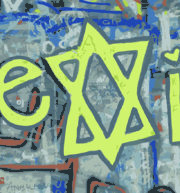
GENEVA – The phenomenon of fundamentalism is fueling growing intolerance worldwide, which poses a grave threat to the rights to freedom of peaceful assembly and of association, United Nations expert Maina Kiai told the Human Rights Council today in presenting his latest report on religious, free market, political, and nationalist or cultural fundamentalism. “The concept of fundamentalism cannot be limited to religion,” cautioned the UN Special Rapporteur on the rights to freedom of peaceful assembly and of association. “It can and should be defined more expansively, to include any movements – not simply religious ones – that advocate strict and literal adherence to a set of basic beliefs or principles.” “At its core, this report is about the struggle between tolerance and intolerance,” Mr. Kiai stressed. “The people of the world speak some 7,000 languages, practice 270 major religions, live in 193 UN Member States and belong to thousands of cultures. But we share only one planet,” the human rights expert said. “We will not always agree. But tolerance towards our differences is the only way to make sure that they do not boil over into violence, oppression and conflict.” For the Special Rapporteur, the rights to freedom of peaceful assembly and of association are the... Continue reading →

In recent years, there has been a perceived rise in the expression of fundamentalism in many contexts across the world. Despite the frequent use of the term, “fundamentalism” remains a word that is rarely defined with any specificity. Common use generally centers on religious fundamentalism, and this is perhaps what comes to mind first for most people. But fundamentalism can encompass much more than religion, and in this report the Special Rapporteur takes a much broader view of the term. He believes that fundamentalism can and should be defined more expansively, to include any movements – not simply religious ones – that advocate strict and literal adherence to a set of basic beliefs or principles. Adherence to the principles of free market capitalism, for example, has spawned what has been called “market fundamentalism.” And the unbending belief in the superiority of one ethnic group, race, tribe or nationality can lead to what might be called “nationalist fundamentalism.” Numerous other examples are detailed in this report. This report is not concerned with fundamentalist viewpoints per se, but rather with fundamentalism in action: concrete, specific violations of the rights to freedom of peaceful assembly and of association that are motivated by these viewpoints. The mere voluntary... Continue reading →

For his next report to the Human Rights Council in June 2016, Special Rapporteur Maina Kiai will explore the subject of fundamentalism and the intolerance that it can spur, leading to violations of the rights to freedom of peaceful assembly and of association. The contours of this subject, however, are not necessarily what they might seem at first glance. The term “fundamentalism” lacks a formal academic or legal definition, but for many people it can be a loaded term, implying religious extremism or terrorism. These connotations only capture a small part of the story. For this report, the Special Rapporteur will be approaching the subject of fundamentalism from a different, and much broader, perspective. He believes that fundamentalism encompasses strict adherence to the principles of any given subject, discipline or ideology – not just religion. It also frequently implies intolerance of other views. The purpose of the report is not to make a judgment on whether fundamentalism is good or bad, but to look at its often detrimental impact on the realization of freedoms of peaceful assembly and association. Thus, the report will also explore other variations of fundamentalism, some of which may not traditionally be viewed as fundamentalism at all: market fundamentalism, nationalist... Continue reading →